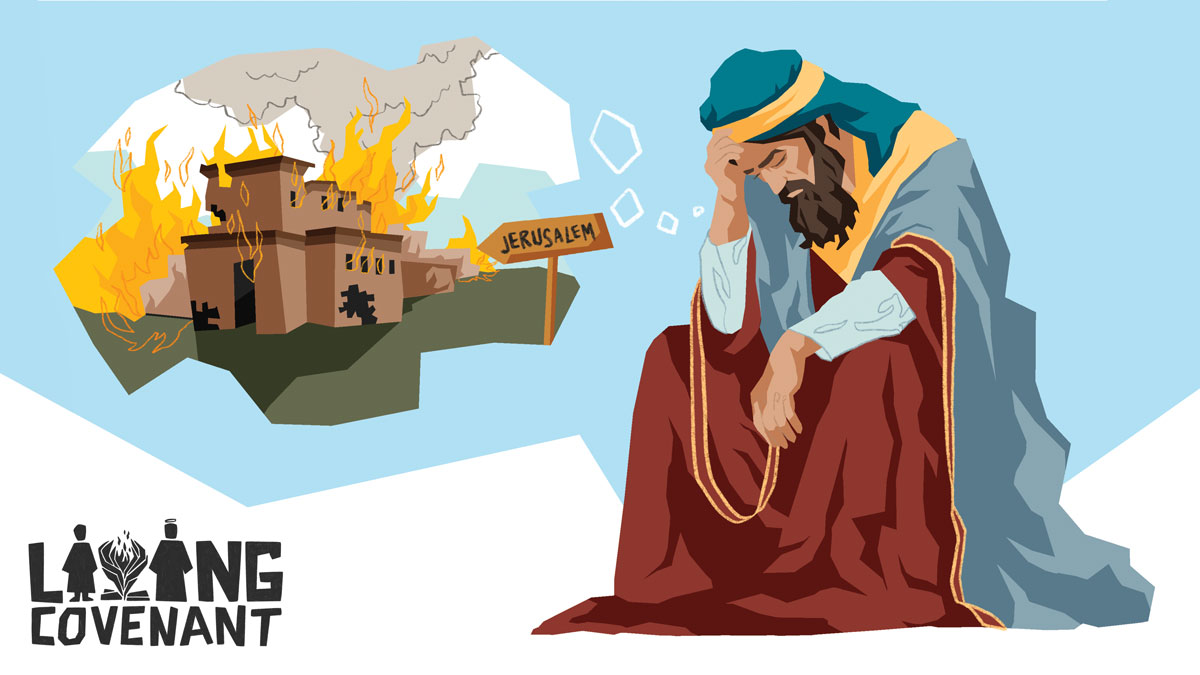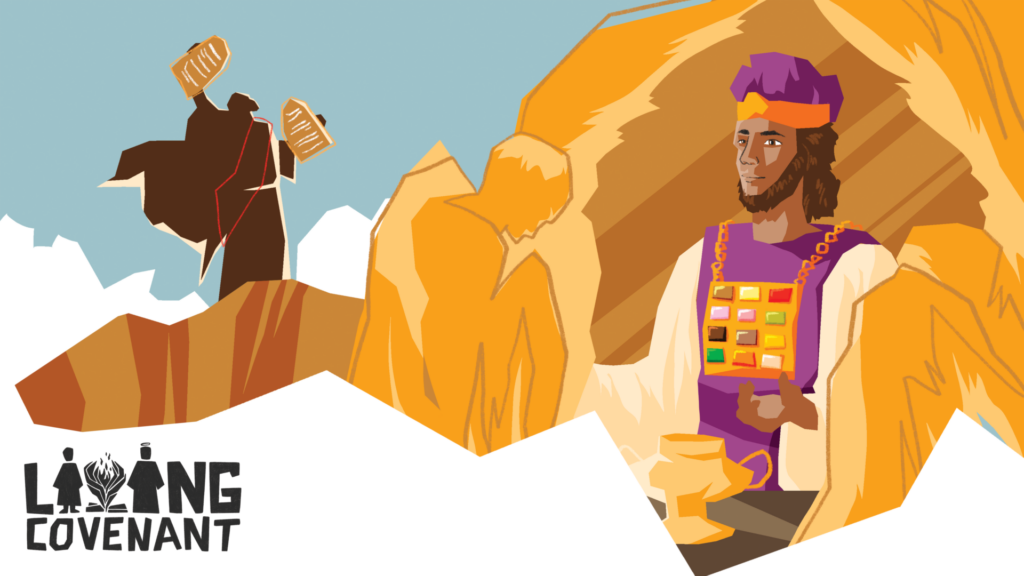I’m always fascinated by the unfolding narratives of the Old Testament, the role of each character and how our covenant-keeping God operates. There are days when I visualise each story, whether it’s a journey, a battlefield or something as simple as a family gathering. Jeremiah is one of the books we perhaps miss when thinking about the “big stories” of the Old Testament. Apart from being known as a major prophet and the fact that Jeremiah 29:11 is a popularly quoted text, it is important to note that Jeremiah was one of those individuals who personally experienced the exile of Judah to Babylon.
Jeremiah was called to ministry under the reign of the last kings of Judah: mainly Kings Josiah (627 BC), Jehoiakim (609-598 BC) and Zedekiah (587 BC). He started his prophetic work as the Assyrian Empire was collapsing and the Babylonians were gaining power. King Josiah’s attempt to intervene in this power shift, led to his untimely death and Judah becoming subject to Egypt. Jehoahaz briefly became king, only to be replaced by Jehoiakim, who switched allegiances from Egypt to Babylon. Jehoiakim’s eventual rebellion against Babylon resulted in his death and the appointment of his brother Jehoiachin, followed by Zedekiah as king. Zedekiah’s ineffective rule and failed escape from Jerusalem led to the city’s destruction and his capture by the Babylonians. This was the political status of Judah when Jeremiah performed his prophetic duties.
Like other prophets, the Lord specifically revealed a future plan to Jeremiah: “Before I formed you in the womb I knew you; Before you were born I sanctified you; I ordained you a prophet to the nations” (Jeremiah 1:5).
Jeremiah argued his inability to speak due to his youth, yet the Lord encouraged him: “Do not say, ‘I am a youth,’ for you shall go to all whom I send you, and whatever I command you, you shall speak. Do not be afraid of their faces, for I am with you to deliver you,” says the LORD (Jeremiah 1:7,8). In this affirmation, God used strong verbs to express the vast responsibility appointed to Jeremiah: to root out and pull down, to destroy and throw down, to build and plant (Jeremiah 1:10). In this verse, and throughout his book, we find a similar message of great judgement paired with a glimpse of hope for the nation.
A broken covenant
The first 24 chapters of the Book of Jeremiah outline a series of sermons. In these sermons, Jeremiah proclaims judgement, imminent invasion and doom upon the nation of Judah. Judah has broken their covenant with God through the worship of idols, moral corruption and social injustices. This is evident in Jeremiah’s temple sermon (chapter 7). We find Judah worshipping Canaanite gods, burning incense to Baal and “walking after other gods” (Jeremiah 7:9). The streets of Jerusalem are filled with women, children and fathers kindling fires to offer baked cakes to the “queen of heaven” as they pour drink offerings to other gods (Jeremiah 7:18). Corruption grew among the people. While worshipping God inside the temple, they oppressed strangers, the fatherless and widows to the extent of shedding innocent blood outside the temple (Jeremiah 7:6). Within the city, God witnessed theft, murder, adultery and false witness. Such practices of social injustice were clear violations of the Torah and the Commandments of God (Jeremiah 7:9).
Message of hope
Although Jeremiah was tasked to deliver a message of great judgement upon Judah, there was a glimpse of hope. Despite their rebellion, Jeremiah prophesied that the land they now inhabited (the Promised Land) would be desolate and that God’s servant (Babylon) would rule them for 70 years (Jeremiah 25:9,11). However, after 70 years had passed, God would punish Babylon for its iniquities (Jeremiah 25:12). This same affirmation appears in Jeremiah’s letter to those taken captive to Babylon in chapter 29: “For thus says the LORD, after 70 years are completed at Babylon, I will visit you and perform my good word toward you, and cause you to return to this place” (Jeremiah 29:10). This was the hope that Jeremiah shared with the nation of Judah: that despite their disobedience God would still deliver them.
Rejection of Jeremiah
I can’t quite imagine how Jeremiah felt when he and his message were rejected by priests and prophets, even facing threats: “You will surely die” (Jeremiah 26:8). Let’s state the facts: Jeremiah’s message was not easily welcomed by the nation. His writings, which warned the nation, were destroyed by King Jehoiakim (Jeremiah 36:25). He was imprisoned and thrown into a dungeon by King Zedekiah (Jeremiah 38:6), and finally taken with force by a group of Israelites to Egypt to escape the Babylonians (Jeremiah 43).
Express your desires
God listens when we express our most profound concerns. Upon announcing the doom of the nation, Jeremiah expressed anguish; he wore sackclothes and wished his head was a spring of water and his eyes a fountain of tears that he might weep day and night for the slain of his people (Jeremiah 9:1,2). I recall my final few days in high school. I had informed my mum of the graduation program weeks earlier and expressed my desire that her presence mattered to me as her eldest son. Early graduation morning, I approached my teacher and told her of Mum’s inability to be present.
She responded, “It’s okay, we are here for you.”
I found myself sitting in the last row of the hall, glancing at the parents cheerfully supporting their children. I sank into my chair. I was graduating as the best student in the Year 13 group, along with other achievements. But I felt alone.
That night, I snuck out of the dormitory and sat under a coconut tree, pouring my heart to God until I could no longer feel my face. I was interrupted by a still, small voice that night: “Look up to the skies.” Blinded by tears, I wiped my face and saw thousands upon thousands of stars. The voice whispered, “That’s how much I love you.”
God listens when we express our most profound concerns. He cares about our feelings and all that we can bring to the altar.
Jeremiah’s unpopular ministry (Jeremiah 20:7-18)

Have members walked out of your church? Is anyone attending weekly prayer meetings? Jeremiah complained that he was deceived by God. He wished not to mention God anymore, as he felt weary and mocked from all sides. However, he acknowledged that God was with him and would fight for him, for God tests the righteous. When ministry and life seem at their worst, many people question God’s authority and His plans, while some consider quitting. Interestingly, the more Jeremiah dwelt on his disappointment and unpopularity, the more convinced he became of God’s assurance in his life. Jeremiah teaches that when the road is unclear and narrow, we shouldn’t turn back or march forward blindly. Instead, we should pause, grapple with our existing problems and seek God’s will. When clarity comes, we can continue our march. It is always best to make decisions when our conscience is clear and at rest with God.
Hope in a dark world (Jeremiah 29)
When God spoke to Jeremiah concerning the siege of Babylon, Jeremiah cried out in anguish because he was concerned for his people. We cannot forget that the God we serve is a covenant-keeping God: “For I know the thoughts I think toward you,” says the LORD, “thoughts of peace and not of evil, to give you a future and a hope (Jeremiah 29:11).”
This was the message of Jeremiah to Judah: that despite the many times they had wronged God, God still had them on His mind. He offered peace, a future and hope in the midst of captivity. That promise extends to us today through Christ. He offers peace, a future and hope to anyone who is in captivity. And to the many who have experienced this hope personally, may we remember the work of Jeremiah. A vessel of hope to the nation—irrespective of our youth and inability to speak—for God will put His word in our mouth.
Jordan Weatherall was born in Fiji and currently working as an English teacher missionary for TPUM in East Java, West Indonesia.






